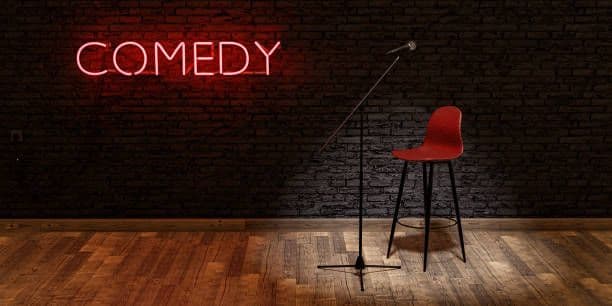Laura Maguire
2020-01-14
Comedy on the Edges

Is there comedy so offensive that it shouldn’t be allowed? Do some jokes encourage bigotry and hatred? Could edgy comedy ever be good for society? These are some of the questions we’re asking in this week’s show on Comedy and the Culture Wars. It’s our first new show since Ken died last month (apart from the tribute episode we made), so I hope Ken would be happy to see that we are keeping the torch lit and his legacy alive.
We’ve all heard the complaint that “snowflakes” and “political correctness” are ruining comedy. There are some people, the complaint goes, who are just way too sensitive when it comes to jokes, and they need to lighten up and stop taking everything so seriously. They are ruining all the fun for everyone else.
Do they have a point? Do we need to Make Comedy Great Again? You know, like when white men with power could tell racist or sexist jokes and not get any pushback. Yeah, that seems like the direction we ought to be heading… Sure, there are people who need to lighten up. And there are definitely people who seem to be missing the “satire gene” or something. (Seriously, are you people congenitally satire-blind or what?) But there are also other people who really need to get a clue.
Some jokes serve only to reinforce prejudices and normalize bigotry and should be called out for that. If you like to tell those kinds of jokes and then get offended whenever there’s a negative response, perhaps it is you who is the “snowflake,” too delicate for this brave new world where there are social repercussions for your bigotry and prejudice.
At the same time, there is always someone, somewhere who is offended. You get the sense that some people are “outrage junkies” constantly looking for their next fix, the next headline or comment to get outraged by. They troll social media in search of offenses to the proper world order, as uniquely understood and enforced by them. They are usually not lovers of nuance and subtlety, preferring instead to jump to judgment without bothering to understand first. You know, the type who fervently lambasts an article they haven’t read, except for the headline, which they have misinterpreted. Are these “outrage junkies” ruining comedy?
“Ruining” is maybe putting it a bit strong. I think comedy is more resilient than that. If something is made unfunny by a little bit of criticism, then maybe it just wasn’t that funny to begin with. The difficulty, however, is that in a call-out culture, such as our own, sometimes what is called out is truly objectionable behavior, and sometimes it’s not. Sometimes it’s just someone getting outraged because that is the only power they have. But how do we tell the difference between the two? And when we react negatively to a joke, how do we know which kind of reaction we’re having? It seems to me there’s some responsibility on the consumer of comedy to reflect on these kinds of questions.
But is there also responsibility on the mongers of comedy to make sure they are not causing harm in the world? For example, do comedians bear responsibility for how their jokes are interpreted, or misinterpreted? Take Norm MacDonald. No, please. Take him. Someone just take him! But seriously, should we feel sorry for Norm when he had to drop some jokes because “People are idiots. You don’t want to have a joke be misunderstood and then someone goes and beats up a trans person”? Or should we just roll our eyes because yet another straight, white, middle-aged, cis-gender man with a large public platform is complaining that he is no longer “allowed” to ridicule every marginalized group in society without repercussion? The man should be counting his lucky stars that someone so utterly mediocre was nevertheless given their own Netflix talk show! I guess this is what “silencing” looks like to an overrated hack like Norm.
Look, I’m not advocating for censorship in comedy. And I don’t even think there are certain topics that ought to be avoided. Comedians should be able to tackle controversial issues, even if—maybe even especially if—someone, somewhere, might get offended. It’s not about whether or not some comedy is “offensive.” It’s about whether it aligns itself with perspectives of power over those of the powerless. Comedy that “punches down” is just not funny most of the time. It’s tired, boring, and lazy. It makes me want to say: Hey Norm, the 1960s called. They want their jokes back!
Does that mean I think comedy is only funny when it’s “punching up”? When it’s making fun of the rich and powerful? I admit, I do enjoy that kind of comedy a lot; if it’s good, that is. But we shouldn’t think that the “punching up”/”punching down” distinction exhausts all of comedy. There is the non-punching kind of comedy too, comedy where nobody gets hurt!
Comedy is often about unmasking cultural or personal habits and perspectives, upsetting preconceptions, asking difficult questions, messing up established categories, and subverting meanings. Some of the best jokes have no butt.
Good comedy is an artform. It is a lot like good philosophy. Just funnier. But both comedy and philosophy can make an otherwise intolerable world bearable. And that is something to be cherished.